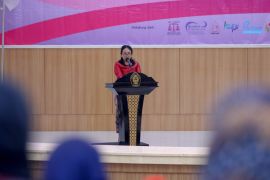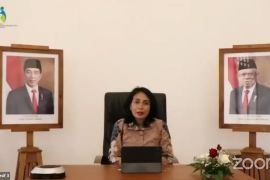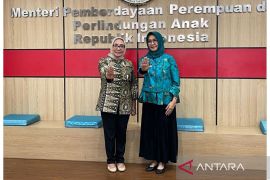“Child participation is not merely symbolic, it is a right protected by law. The government is responsible not only for listening to children but also for taking action by incorporating their voices into national and regional policies, programs, and development activities,” Devy Nia Pradhika, Assistant Deputy for Policy Implementation Coordination on Fulfillment of Children's Rights in Region I at KemenPPPA, stated in Jakarta on Monday.
KemenPPPA is organizing the National Children's Forum Workshop as part of a series of events leading up to the 2025 National Children's Day (HAN), which is celebrated annually on July 23.
“In preparation for HAN 2025, KemenPPPA is rolling out several initiatives, including the drafting and presentation of the Voice of Indonesian Children (SAI), which serves as a collective expression of children’s aspirations, needs, and hopes, particularly regarding the fulfillment of their rights and special protection,” Devy explained.
The SAI is compiled by gathering inputs from children throughout Indonesia, from villages to provinces, supported by the “Children’s Voice Canvas” tool to ensure a more systematic and inclusive process.
This participatory approach is considered key to advancing inclusive, sustainable development that prioritizes the best interests of children.
Devy further underscored that child protection is a fundamental component of Indonesia’s national development agenda.
The 2025–2029 National Medium-Term Development Plan (RPJMN) identifies improving the quality of children, women, and youth as a strategic pillar for building a competitive and resilient human resource base.
“As part of our concrete efforts in child protection, the government has enacted Law No. 35 of 2014 on Child Protection, a revision of Law No. 23 of 2002, affirming every child’s right to optimal growth and development, protection from violence and exploitation, and equitable access to education, healthcare, and welfare,” she noted.
Devy stressed that sustainable development in Indonesia cannot be achieved without investing in the next generation. Children must be viewed as active subjects in development, not merely passive beneficiaries.
“As such, fulfilling children's rights must be an integral part of national policy making. We invite all stakeholders to actively support child involvement in the development process," she added.
Through this workshop, KemenPPAP hopes children will understand the value of participation and begin to draft a Voice of Indonesian Children that is both relevant and impactful in shaping more responsive policies.
"Let us build a development path that truly prioritizes the best interests of our children, for a better future for Indonesia,” she concluded.
Related news: Indonesia's MPR calls for support on children's information rights
Related news: Ministry to restart campaign to tackle violence against children
Translator: Anita, Azis Kurmala
Editor: Arie Novarina
Copyright © ANTARA 2025












